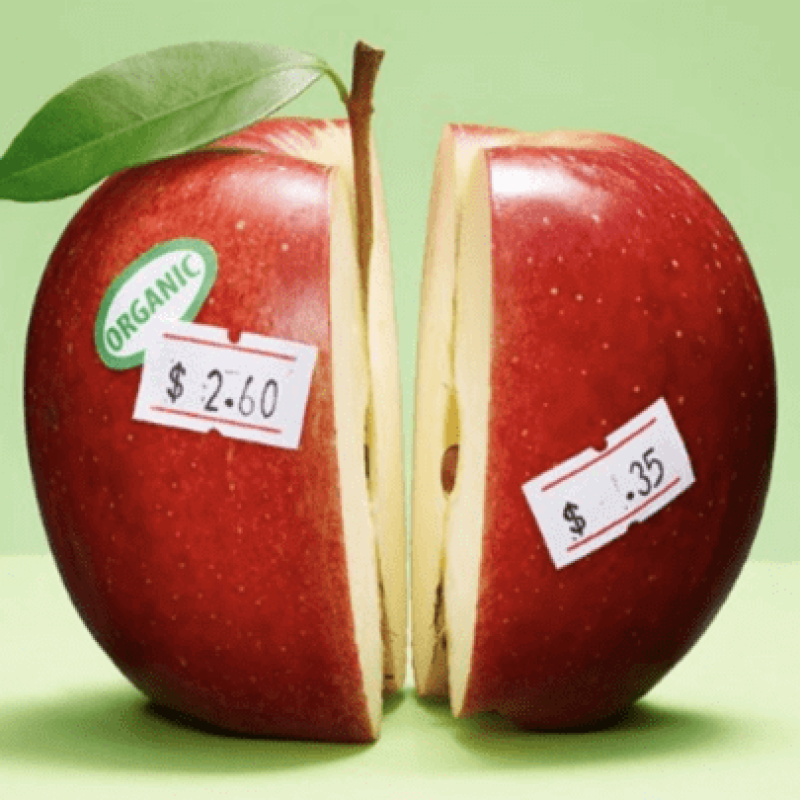Pick just about any newspaper or journal and during the course of a year, one or more articles will be devoted to the benefits (or not) of organic foods and the downsides (or not) of conventionally grown food with pesticides and herbicides. These articles are often confusing.
So how does one sort them out?
Food, whether organically or conventionally grown, is a combination of chemicals, many of which our bodies need in order to function well. Organic food comes from plants grown without added pesticides, herbicides or genetic modification, whereas conventionally grown food may use one or more of these products.
However, not all chemicals in food are useful to our body, and some of them are harmful at a certain level, like too much aflatoxin — a natural fungal product — in peanut butter. And did you know the plants we grow for food naturally produce pesticides and herbicides to protect themselves from insects and weeds? …. The use of pesticides and herbicides, whether human-made or natural, often results in small levels of these chemicals in our food.
Genetic modification (GM) of a food crop, whether done in the lab or through traditional crossbreeding, is often one way to get the crop to develop a new pesticide or herbicide, or to increase the level of an already existing natural one. Such modification may also give the crop a way to resist damage by a human-made herbicide.
So corn can be genetically modified in the lab to make a protein to protect it against insect damage and at the same time to resist damage by human-made herbicides used to kill weeds. The use of GM corn with both of these traits is popular because it not only increases yields, but also reduces plowing, soil erosion, and use of conventional pesticides and herbicides. Of course, corn has been genetically modified through traditional crossbreeding for years to increase yields and resist pests.
So now to the question! Is organic food safer to eat? Or perhaps, are the small levels of pesticides, herbicides and genetic modifications in our food, whether human-made or natural, harmful?
Many organizations work on a daily basis to answer this latter question. In fact, tens of millions of dollars are spent by competing industries on appropriate experimental animal and exposure studies. These studies then are reviewed by toxicologists to establish safe levels. These levels are then compared with the anticipated exposures when the pesticide, herbicide or genetic modification is used according to its label.
If the anticipated exposures are below the safe levels, then the uses are permitted and the small levels of these chemicals in our food are not harmful. Although such testing is generally not done on naturally occurring plant chemicals, human experience would suggest that exposures to many of these naturally occurring pesticides, herbicides or genetic modifications are also below safe levels.
When comparing organic versus conventional methods of growing food, other issues may be important. For example, organically grown foods may better maintain a sustainable farm practice, may reduce unanticipated environmental impacts of human-made pesticides, herbicides or genetically modified plants, and would reduce accidental and often demonstrated harm to workers from over exposure to these chemicals.
However, organic farming generally needs extra plowing so soil erosion is increased when compared with conventional farming. And while eating organic foods has been demonstrated to lower consumer exposure to some human-made pesticides and herbicides, insect damage from unprotected plants can cause natural pesticides and herbicides to increase.
This article originally ran at the American Council on Science and Health and has been republished here with permission. Follow ACSH on Twitter @ACSHorg































